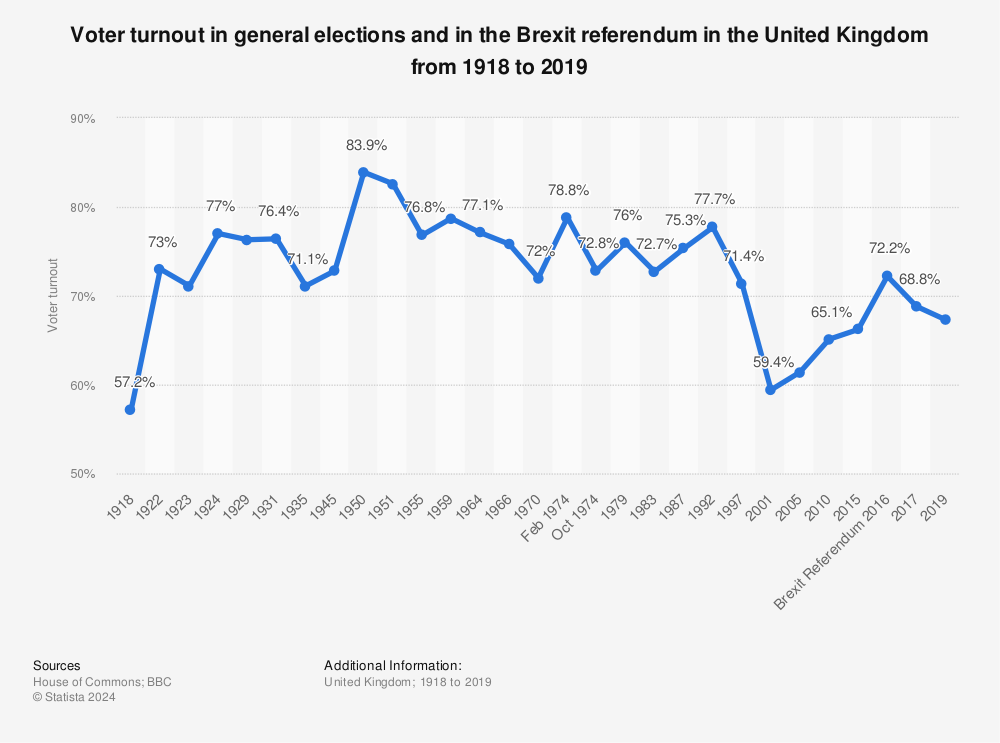At this point, it seems like most people in the UK want the Tories out of office – largely because of the terrible policies they’ve inflicted. As such, it’s concerning to see Labour aligning themselves so closely with the Tories’ policy platform. It’s a concern that even Tories seem to share at this point if Laura Kuenssberg’s endless supply of anonymous sources is anything to go by. As she writes in her latest blog:
Whatever cunning wheezes No 10 conjures up, the hole the Conservatives need to climb out of is very deep.
That’s not just because of the chaos of last year which angered so many of the public. Not just because any party that has been in power for this long is vulnerable to voters just feeling they have had enough.
But it is also harder to run persuasive campaigns when the contrasts with your rivals are less pronounced. One minister worries the “big dividing lines” just are not there.
Dividing lines
Polling shows that the Tories are about as unpopular as they have been at any point in the past two decades. This isn’t because the Tories are any less awful now than when they first got in; it’s because a wider swathe of the population have felt the impacts. It’s easy to turn a blind eye when the government is driving disabled people to suicide or impoverishing children. But it’s much harder to do when the price of diesel goes up by several pence per litre.
The anonymous Tories queuing up to bare their deepest worries to Kuenssberg are right to suggest that any sort of dividing lines would give them a campaign line. While not screwing people over seems like a winning policy platform, you have to factor in the British media.
If Labour was to campaign on not starving children, the British rags would sell this as ‘funding tiny scroungers’. Outlets like the Guardian would make a big show about how deeply it felt for these starving kids, but it would also worry that feeding them would be an electoral liability.
So, what should Labour do if running on not-shit policies is going to attract negative press from the billionaire-backed British press? I’d argue there are two things.
- Run on good policies anyway.
- Get good at politics and not be such chicken shits.
Swing right
Of course, this last point is overly generous to Labour in that it assumes something we all know isn’t true: that Keir Starmer would like to do the right thing, but he thinks the smart political move is to have no friction with the press whatsoever. That isn’t the case, though, is it? Starmer is lurching rightwards because that’s where he wants to be – like a Saturday night sessionist stumbling towards the kebab shop:
NEW: Right-wing US Republican Senator Chuck Grassley has praised UK Labour's economic policy, comparing it to the policies of Ronald Reagan.
He specifically praised Shadow Chancellor Rachel Reeves for ruling out tax rises for the rich, saying she is "for wealth creation". pic.twitter.com/ylKmCXEzdu
— Stats for Lefties
(@LeftieStats) September 2, 2023
Several of Kuenssberg’s anonymous sources had things to say like this:
Those lucky enough to have got their posteriors on the leather seats of ministerial cars all know the situation is bad. “The numbers don’t lie,” a senior minister tells me. Another cabinet minister says “there is no point pretending we are not under pressure and it is going to get worse”.
Another member of the government suggests the chances of turning the situation round are miniscule: “The path was always narrow, now it is looking vanishingly narrow.”
Others said:
But the Conservatives have been in the doldrums for a long time. Ministers know they are soaking up a sense that many of the public are profoundly fed up.
One of the cabinet ministers I spoke to admits: “The public is bored with us and frustrated that things have been announced that haven’t been delivered.”
The sight of queues at airports, more rail and doctors’ strikes, and this week children not being able to go back to school because of the risk of buildings collapsing all contribute to a tangible sense among many voters that lots about our country just does not really work.
Labour: next stop the right-wing gravy train
While we should always doubt the intentions of Kuenssberg’s anonymous political sources, it’s unclear what they expect to achieve from these revelations. Potentially some of them want PM Rishi Sunak to lurch further right himself, but if they do want that, they’re not making it clear. It actually reads like they’re genuinely despondent, and they’re telling Kuenssberg because it’s easier than filling out an expenses form for a therapist.
This tells us something else, anyway – namely that bar some miraculous event, everyone knows the Tories are on their way out. Given the amount of time left between now and the next election, Labour doesn’t just have unbelievable odds of winning; it also has time to set out a progressive policy platform, and to use the absolute state of Tory Britain to sell it.
Starmer’s not doing that because he doesn’t want to. And the Tories are worried for the same reason we all should be – namely that the right-wing gravy train is going to be stopping exclusively at Labour’s station for the next few years.
Featured image via Just Stop Oil – YouTube

 (@Haggis_UK)
(@Haggis_UK) 










 Check out the full list of events:
Check out the full list of events:

 blackness unfortunately is synonymous with criminality.
blackness unfortunately is synonymous with criminality.  (@HealthyNuance)
(@HealthyNuance)  Tariyé
Tariyé 

 We are organising a coach from
We are organising a coach from 



 (2021)
(2021)



 (@cmclymer)
(@cmclymer) 
 (@WillBlackWriter)
(@WillBlackWriter) 

 (@9209Ant)
(@9209Ant)  (@detectclips)
(@detectclips) 

 (@OwenPaintbrush)
(@OwenPaintbrush) 



